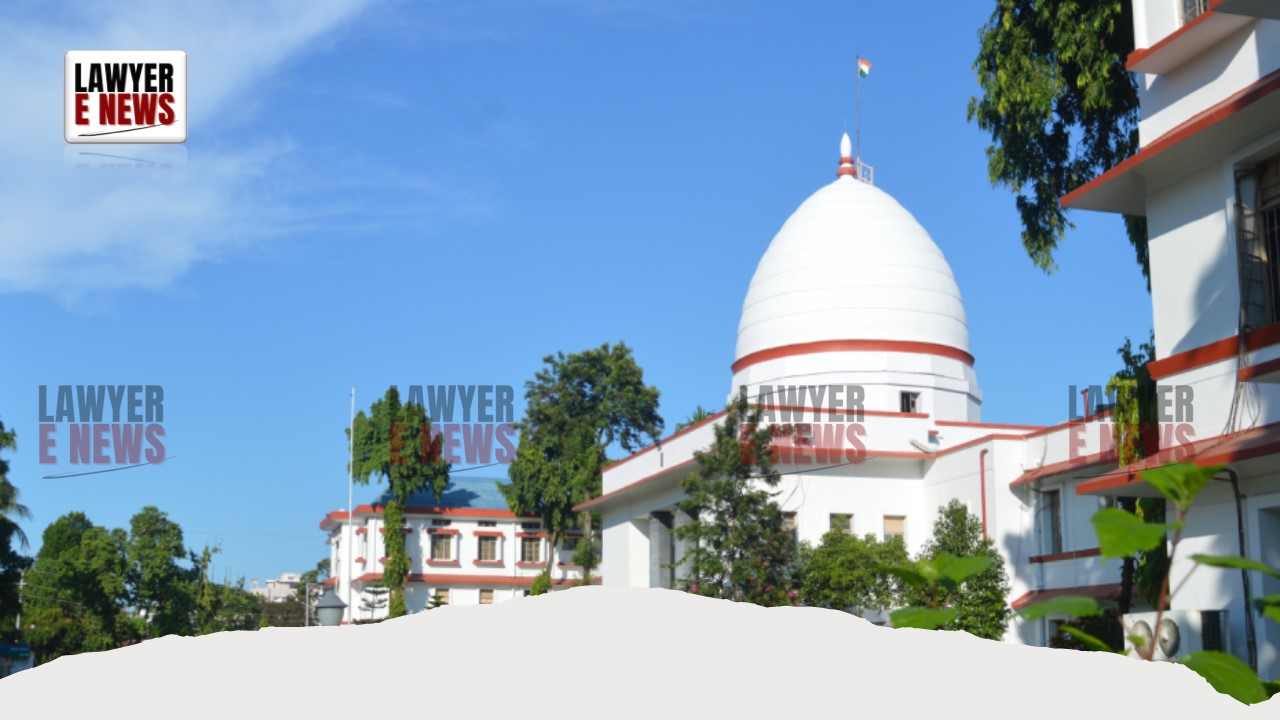-
by Admin
15 February 2026 2:16 AM



The Gauhati High Court has upheld the trial court’s decision granting a 1/8th share of the property to Smti. Mira Nandi Dutta, a daughter of the deceased Bhupendra Chandra Nandi. The appellants, who are the sons of the deceased, had challenged this decision, claiming an oral agreement among heirs that excluded daughters from the inheritance. The judgment, delivered on June 27, 2024, reaffirms the equal inheritance rights of daughters under Section 8 of the Hindu Succession Act, 1956.
Late Bhupendra Chandra Nandi, who owned a plot of land measuring 2 Kathas 5 Lechas, passed away on November 13, 1991, leaving behind four sons and four daughters. Following his death, his sons demolished the old residence and constructed a multistoried commercial complex on the property. The daughters, who were already married at the time of their father’s death, were allegedly excluded from the property through an oral agreement made among the heirs on August 14, 1991.
Smti. Mira Nandi Dutta, one of the daughters, later demanded her rightful share of the property. The sons counterclaimed, asserting exclusive ownership of the property due to their financial investment in the construction of the building. The trial court decreed in favor of Smti. Mira Nandi Dutta, which led to the present appeal by the sons.
The court found no evidence to support the claim of an oral agreement excluding the daughters from their inheritance. “There is no evidence in this case to show that the daughters of late Bhupendra Chandra Nandi had agreed not to demand their shares in the suit property,” the judgment noted.
The court reiterated that daughters are Class-I heirs under Section 8 of the Hindu Succession Act, 1956, enjoying the same rights as sons. “The marriage of a daughter has no relevance for inheriting property. As a daughter, she enjoys the same coparcenary rights as a son,” the court emphasized.
The court deemed the mutation of the property in the names of only the sons to be illegal, stressing that all Class-I heirs, including daughters, are entitled to equal shares. “The mutation of only four sons is illegal and liable to be corrected,” the court declared.
The appellants’ claim of exclusive ownership due to their financial contributions to the building was rejected. The court held that contributions to the construction did not negate the statutory share of the daughters. “In view of Section 8, the sons of late Bhupendra Chandra Nandi are not the only owners of the building. Smti. Mira Dutta Nandi also has a share in the said property,” the judgment affirmed.
Justice [Name] remarked, “Under the circumstances, this Court is of the opinion that the learned trial court had correctly answered these issues in favor of Smti. Mira Nandi Dutta. Accordingly, these issues were decided in the affirmative.”
The dismissal of the appeal by the Gauhati High Court underscores the judiciary’s commitment to upholding equal inheritance rights for daughters under the Hindu Succession Act. By affirming the trial court’s findings, the judgment reinforces the legal framework ensuring gender equality in inheritance matters. This landmark decision is expected to have a significant impact on future cases, promoting the rightful inclusion of daughters in inheritance distributions.
Date of Decision: June 27, 2024
SRI BIJOY NANDI AND 3 ORS versus SMTI MIRA NANDI DUTTA AND 3 ORS
